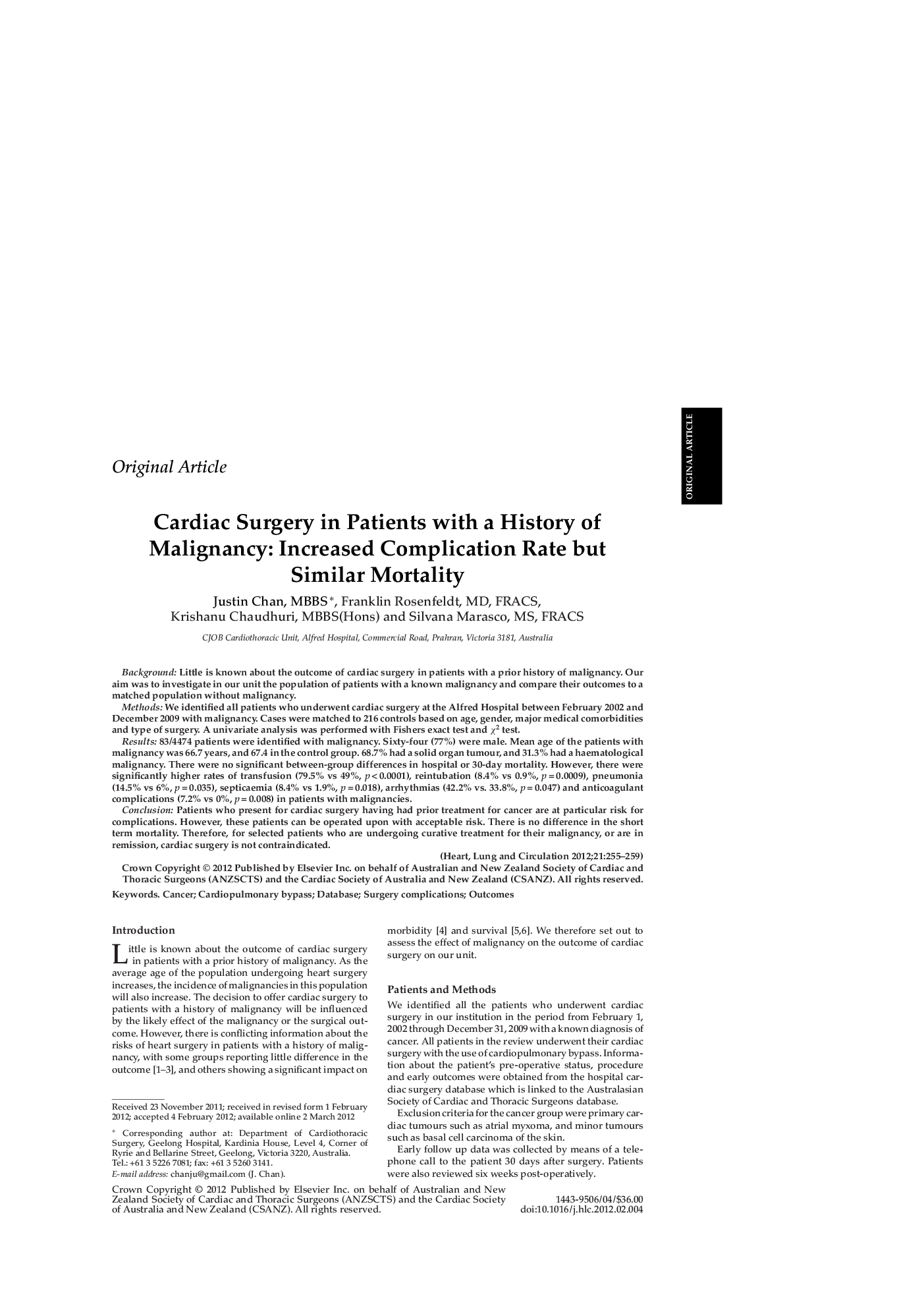| Article ID | Journal | Published Year | Pages | File Type |
|---|---|---|---|---|
| 2918512 | Heart, Lung and Circulation | 2012 | 5 Pages |
BackgroundLittle is known about the outcome of cardiac surgery in patients with a prior history of malignancy. Our aim was to investigate in our unit the population of patients with a known malignancy and compare their outcomes to a matched population without malignancy.MethodsWe identified all patients who underwent cardiac surgery at the Alfred Hospital between February 2002 and December 2009 with malignancy. Cases were matched to 216 controls based on age, gender, major medical comorbidities and type of surgery. A univariate analysis was performed with Fishers exact test and χ2 test.Results83/4474 patients were identified with malignancy. Sixty-four (77%) were male. Mean age of the patients with malignancy was 66.7 years, and 67.4 in the control group. 68.7% had a solid organ tumour, and 31.3% had a haematological malignancy. There were no significant between-group differences in hospital or 30-day mortality. However, there were significantly higher rates of transfusion (79.5% vs 49%, p < 0.0001), reintubation (8.4% vs 0.9%, p = 0.0009), pneumonia (14.5% vs 6%, p = 0.035), septicaemia (8.4% vs 1.9%, p = 0.018), arrhythmias (42.2% vs. 33.8%, p = 0.047) and anticoagulant complications (7.2% vs 0%, p = 0.008) in patients with malignancies.ConclusionPatients who present for cardiac surgery having had prior treatment for cancer are at particular risk for complications. However, these patients can be operated upon with acceptable risk. There is no difference in the short term mortality. Therefore, for selected patients who are undergoing curative treatment for their malignancy, or are in remission, cardiac surgery is not contraindicated.
